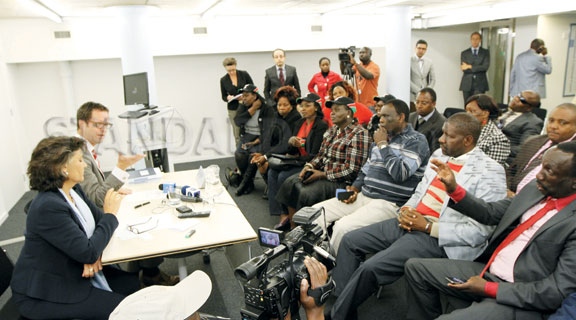×
The Standard e-Paper
Stay Informed, Even Offline
 |
| ICC Registrar Herman Von Hebel conducts a briefing with Kenyan MPs on Deputy President William Ruto’s case at The Hague, Wednesday. [PHOTO: PIUS CHERUIYOT/STANDARD] |
By Alex Ndegwa in Nairobi and Felix Olick at The Hague
Concerns that the cover of the first witness to take the stand at the ICC trial of Deputy President William Ruto had been blown Wednesday forced the court to go into an emergency private session to discuss the security of witnesses.